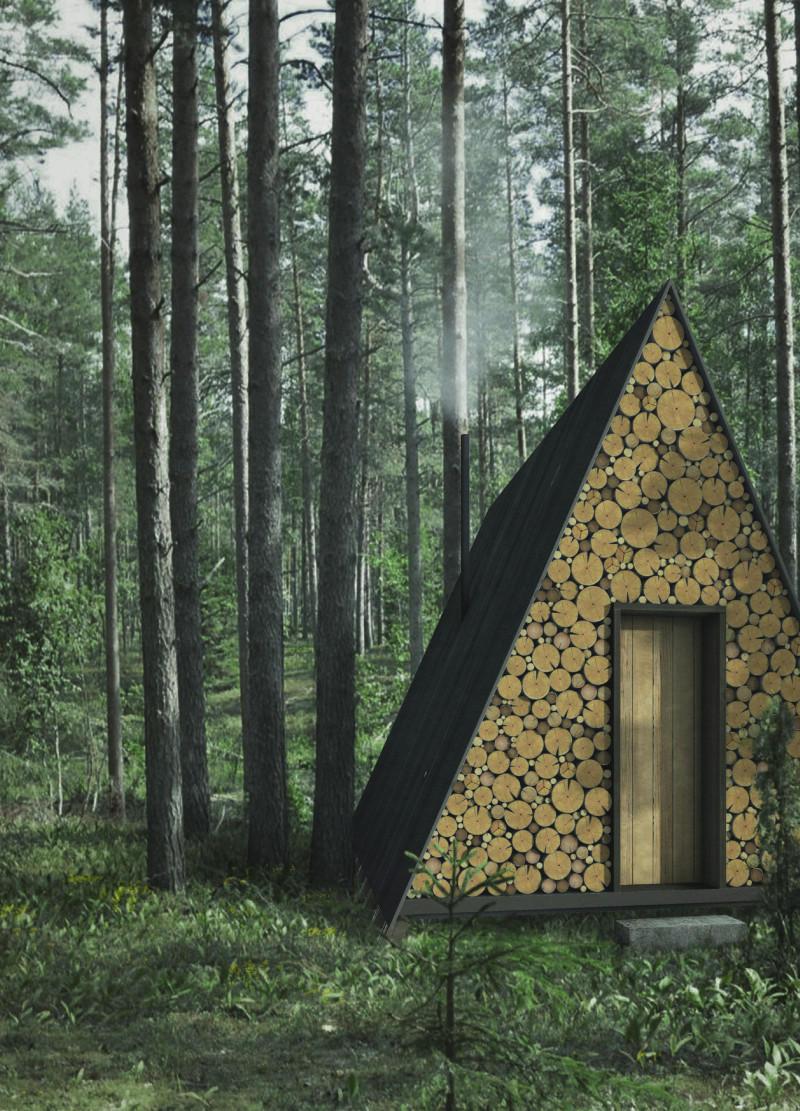5 key facts about this project
The design presents a cabin that serves as a retreat for meditation and personal reflection. Located in a natural setting, it emphasizes the concept of thresholds that transition visitors from the outside world into a calm interior space. This careful arrangement allows people to leave their daily distractions behind and engage more fully with their surroundings. The project organizes different areas for various activities while maintaining a sense of unity throughout.
Threshold Spaces
Thresholds are a key feature in the design, allowing individuals to slow their pace as they approach the cabin. These transitional areas guide visitors and create a mindful journey. Each zone within the cabin is clearly defined yet still connected, promoting exploration. The careful separation of spaces serves to create specific atmospheres that encourage meditation and reflection.
Structural Form
The cabin features a triangular shape, which provides both stability and a visual connection to the surrounding landscape. The floor is slightly elevated, offering occupants a new perspective of the environment. The roof uses traditional methods designed for the local climate, while its interior layout fosters a calming experience that complements the building's purpose.
Materiality and Foundation
Wood is the main material used in the design. Its texture and warmth create a welcoming atmosphere. The aroma of wood enhances the connection to nature. The foundation of the cabin thoughtfully adapts to the uneven terrain, using small pillars that navigate rocks and roots. This design choice respects the natural landscape and promotes a strong connection between the building and its site.
Meditation Space
A special area dedicated to meditation features a triangular opening that invites sunlight inside. This design aspect creates a fresh perspective, encouraging users to engage with the outside world. Steps lead to a raised platform, promoting mindful movement within the space. The overall design fosters a balanced relationship between the structure, the landscape, and the experience of reflection.



























